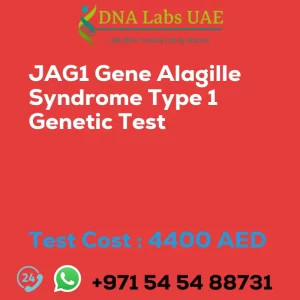PI4KA Gene Polymicrogyria perisylvian with cerebellar hypoplasia and arthrogryposis Genetic Test
Genetic testing is an important tool in diagnosing and understanding rare genetic disorders. One such disorder is polymicrogyria, perisylvian, with cerebellar hypoplasia and arthrogryposis, which is caused by variations or mutations in the PI4KA gene.
Test Details
The PI4KA gene is responsible for producing a protein called phosphatidylinositol 4-kinase alpha (PI4KA). When there are variations or mutations in this gene, it can lead to the development of polymicrogyria, perisylvian, with cerebellar hypoplasia and arthrogryposis.
Polymicrogyria is a condition characterized by abnormal brain development, specifically affecting the cerebral cortex. This results in excessive folding and smaller, irregular gyri compared to a normal brain. Individuals with this condition may experience developmental delays, intellectual disability, seizures, and speech difficulties.
Perisylvian polymicrogyria is a subtype of polymicrogyria that primarily affects the perisylvian region of the brain. This region is important for language and motor functions, so individuals with this condition often have difficulties with speech, swallowing, and motor coordination.
Cerebellar hypoplasia refers to the underdevelopment or incomplete development of the cerebellum, which is responsible for coordinating movement and maintaining balance. This can result in motor impairments, including problems with coordination, balance, and muscle tone.
Arthrogryposis is a condition characterized by multiple joint contractures, leading to limited range of motion and fixed positions of the affected joints. This can cause stiffness, muscle weakness, and difficulties with mobility.
Test Components and Price
The PI4KA Gene Polymicrogyria perisylvian with cerebellar hypoplasia and arthrogryposis Genetic Test costs AED 4400.0. The test requires a blood sample, extracted DNA, or one drop of blood on an FTA card. The report delivery takes approximately 3 to 4 weeks. The method used for testing is NGS (Next-Generation Sequencing) technology.
Test Department and Doctor
The PI4KA Gene Polymicrogyria perisylvian with cerebellar hypoplasia and arthrogryposis Genetic Test is conducted in the Genetics department. It is recommended to consult with a pediatrician for this test.
Pre Test Information
Prior to the test, it is important to provide the clinical history of the patient who is undergoing the PI4KA Gene Polymicrogyria, perisylvian, with cerebellar hypoplasia and arthrogryposis NGS Genetic DNA Test. It is also advisable to have a genetic counseling session to draw a pedigree chart of family members affected by the condition.
Conclusion
NGS genetic testing is a valuable tool in diagnosing and understanding genetic disorders such as polymicrogyria, perisylvian, with cerebellar hypoplasia and arthrogryposis caused by variations in the PI4KA gene. This test can aid in diagnosis, genetic counseling, and potentially guide treatment options or management strategies.
| Test Name | PI4KA Gene Polymicrogyria perisylvian with cerebellar hypoplasia and arthrogryposis Genetic Test |
|---|---|
| Components | |
| Price | 4400.0 AED |
| Sample Condition | Blood or Extracted DNA or One drop Blood on FTA Card |
| Report Delivery | 3 to 4 Weeks |
| Method | NGS Technology |
| Test type | Dysmorphology |
| Doctor | Pediatrics |
| Test Department: | Genetics |
| Pre Test Information | Clinical History of Patient who is going for PI4KA Gene Polymicrogyria, perisylvian, with cerebellar hypoplasia and arthrogryposis NGS Genetic DNA Test. A Genetic Counselling session to draw a pedigree chart of family members affected with PI4KA Gene Polymicrogyria, perisylvian, with cerebellar hypoplasia and arthrogryposis NGS Genetic DNA Test gene PI4KA |
| Test Details |
The PI4KA gene is responsible for providing instructions for the production of a protein called phosphatidylinositol 4-kinase alpha (PI4KA). Variations or mutations in this gene can lead to a rare genetic disorder known as polymicrogyria, perisylvian, with cerebellar hypoplasia and arthrogryposis. Polymicrogyria is a condition characterized by abnormal brain development, specifically affecting the cerebral cortex. It is characterized by excessive folding and small, irregular gyri (the ridges on the surface of the brain) compared to a normal brain. This can result in a range of neurological symptoms, including developmental delays, intellectual disability, seizures, and speech difficulties. Perisylvian polymicrogyria refers to a specific subtype of polymicrogyria that primarily affects the perisylvian region of the brain. This region is important for language and motor functions, so individuals with this condition often have speech and swallowing difficulties, as well as problems with motor coordination. Cerebellar hypoplasia refers to underdevelopment or incomplete development of the cerebellum, which is the part of the brain responsible for coordinating movement and maintaining balance. This can result in motor impairments, including problems with coordination, balance, and muscle tone. Arthrogryposis is a condition characterized by multiple joint contractures, which means that the affected joints have limited range of motion and may be stuck in a fixed position. This can lead to stiffness, muscle weakness, and difficulties with mobility. NGS (Next-Generation Sequencing) genetic testing is a type of genetic test that allows for the analysis of multiple genes simultaneously. In the case of PI4KA gene polymicrogyria, perisylvian, with cerebellar hypoplasia and arthrogryposis, NGS testing can identify variations or mutations in the PI4KA gene that may be responsible for the condition. This can help with diagnosis, genetic counseling, and potentially inform treatment options or management strategies. |








